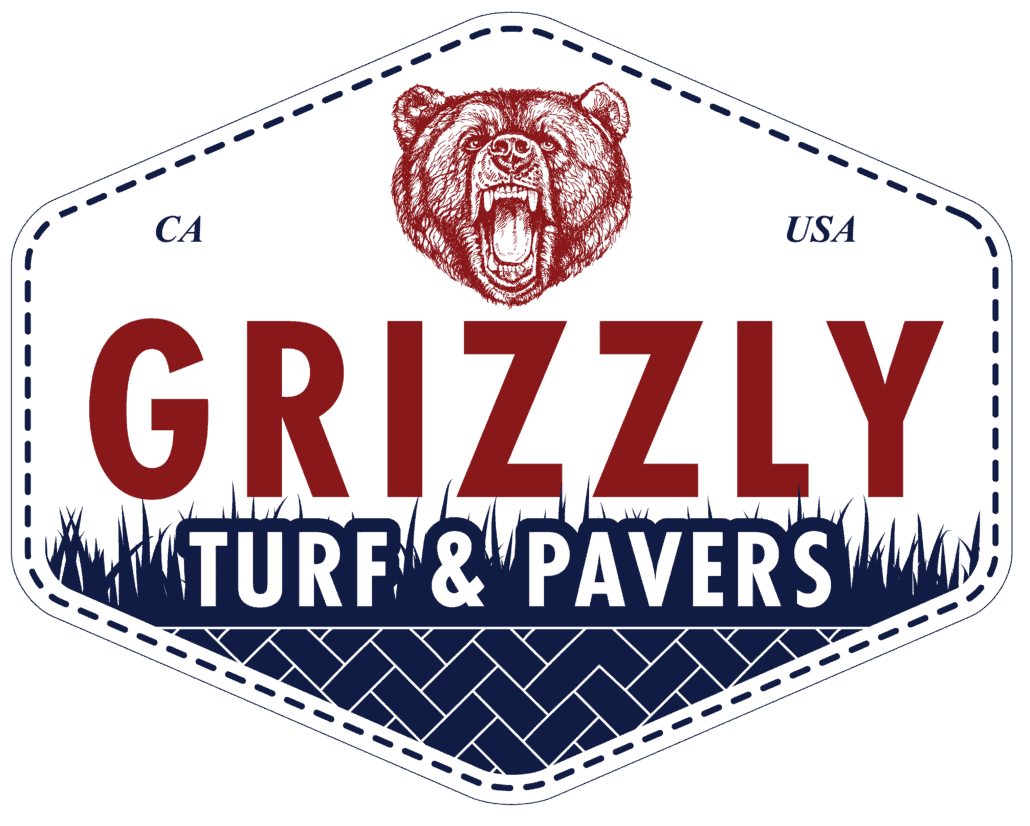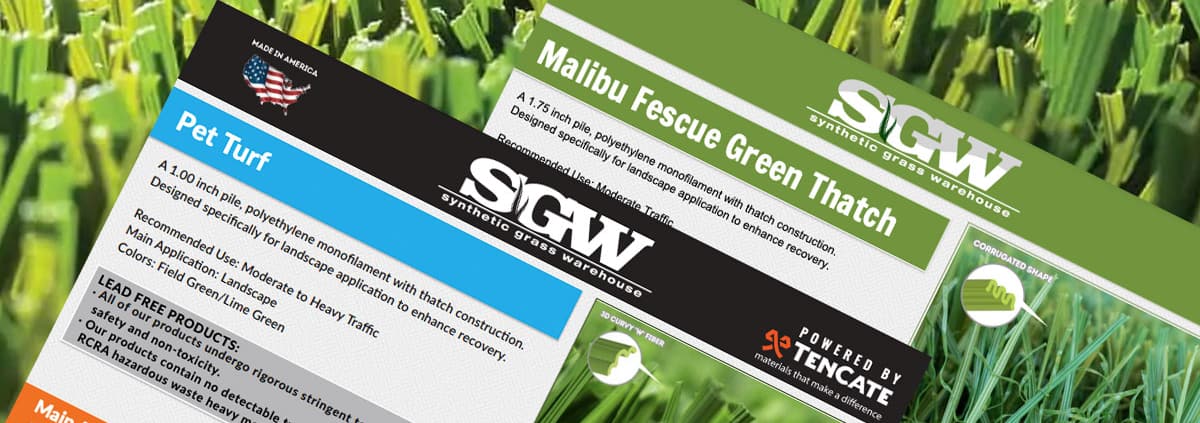How to Read a Spec Sheet
So you’ve decided to finally invest in artificial grass – congratulations! Now that you’ve opted for the most sustainable, money-saving landscaping option on the market today, you may find that choosing the right artificial turf can get a bit…technical. Fear not; Grizzly Turf & Pavers is here to help you make sense of those complex spec sheets that come with all our state-of-the-art synthetic grass products, helping you make the right choice for your synthetic turf needs.
What is a Spec Sheet?
Spec sheets have all the information you need to know about any artificial turf product – they’re designed to provide you with a wealth of technical knowledge to ensure you’re buying the right synthetic grass for your home or business. However, if you’re not familiar with turf terminology, reading a spec sheet can be as confusing as reading another language; that’s why we’ve compiled a list of terms you need to know to help you make the most informed decision.
Yarn Characteristics
This section gives you all the details on what your artificial turf’s yarn is made of. Yarn characteristics provide information on specifications, such as:
- Yarn type: Details of the thread used to manufacture the artificial turf’s blades. Monofilament is the most common type of yarn you’ll find in this section.
- Composition: This is precisely what it sounds like – here, you’ll find details about what the artificial turf is made of. Polyethylene and nylon are the two materials you’ll see in this section the most.
- Denier: The unit of measurement used to determine the linear mass density of synthetic turf fibers.
- Colors: In most cases, this section will have a shade of green. You’ll find popular colors such as field green, olive green and lime green.
Turf Characteristics
Here is where you’ll find information on what makes the overall artificial turf look so good! On your spec sheet, you’ll see the following turf characteristics:
- Pile/Face weight: The weight of the artificial grass fibers, not including the backing underneath – this is weighed in ounces per square yard. As a rule of thumb, the greater the face weight, the denser your product will be.
- Pile height: How the length of artificial turf fibers is measured, typically in inches. Shorter pile heights are better suited for heavy-traffic landscaping to prevent matting, whereas longer pile heights are for light to moderate traffic.
- Gauge: The distance between rows of stitching in artificial grass. An ideal gauge is usually ½ inch or less, depending on the synthetic turf’s weight.
- Thatch: A textured type of yarn placed below the face yarn designed to enhance recovery after use. Thatch colors will come in a shade of brown.
Backing Characteristics
Backing is what gives artificial grass the support it needs to keep its tufts secure. Backing characteristics on your spec sheet include composition, weight, finish coating (usually polyurethane) and tuft bind – the amount of force needed to pull tufted blades out of the backing.
Manufactured Rolls
Possibly the most straightforward specification, here is where you’ll find information regarding the roll of artificial grass you’re buying. Specs include width, length, shipping weight and the diameter of the roll.
Particulate Infill
Infill is the material used between your artificial turf’s fibers to provide ballast and cushion. Infill gives a softer feeling underfoot and minimizes damage upon impact. Your spec sheet will display your infill’s type, weight, height and colors.
Additional Information
Your spec sheet will have some extra facts that are important to know about your artificial turf, including:
- Recommended maintenance: Instructions on how to keep your synthetic grass looking as good as the day it was installed.
- Drainage rate: Statistics that tell you how much rain and water your artificial grass can drain per hour per square yard, keeping your synthetic turf dry.
- Environmental information: This can include the manufacturer’s lead-free certification and proof of non-toxicity.





